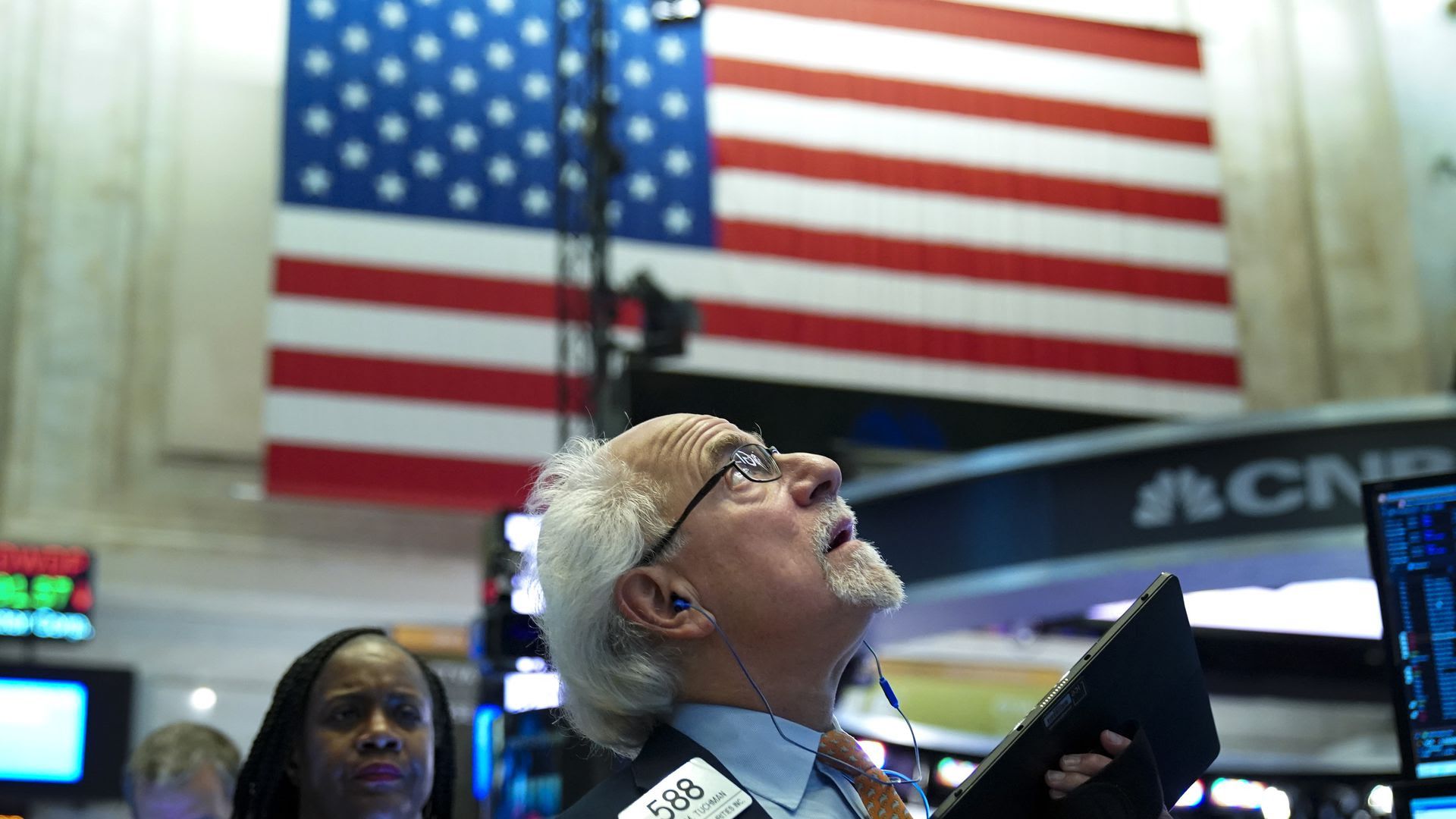The stock market is desperate for a hero
Add Axios as your preferred source to
see more of our stories on Google.

Photo: Drew Angerer/Getty Images
In the absence of strong balance sheets or strong profits, the U.S. stock market is lavishing dollars on any new company that can put together a plausible theory of future success.
What's happening: The 2019 FOMO market may not have been willing to look past Uber or Lyft's $1 billion a year in losses — at least on IPO day— but the unbridled enthusiasm for companies like Beyond Meat, Shockwave Medical and Zoom show investors are desperately seeking a winner and they're willing to pay top dollar to find one.
- Beyond Meat, up 465% from its May IPO price, lost nearly $30 million in 2018 with $88 million in revenue and noted in its S-1 filing, "We may be unable to achieve or sustain profitability."
- Shockwave Medical, up nearly 250% from its March IPO price, lost $12.8 million in 2018, on revenues of just $7.3 million.
- Zoom, up 180% from its April IPO price, is "profitable" but has a net income loss of $7.5 million for the period ending January 2019.
Driving the news: Gig economy marketplace Fiverr became the latest IPO to catch fire. Despite being in business for nearly a decade, the company is not profitable, manages to lose more money the more revenue it earns (-$36 million on $75 million in revenue last year) and has no real plan for turning a profit in the near future. Nevertheless, it rose 90% on its opening day.
- "If you've got extremely fast growth and a market opportunity, investors are comfortable knowing that profits will come later," Matt Kennedy, who analyzes IPOs for Renaissance Capital told CNBC.
- The Renaissance Capital IPO ETF, which tracks the latest big IPOs, is up 34% this year, more than twice the performance of the S&P 500.
Watch this space: Even when companies came to market with a plan to make money, things didn't often work out that way. University of Florida professor Jay Ritter's data shows more than 60% of the over 7,000 IPOs from 1975 to 2011 had negative absolute returns in the 5 years following their first day of trading and "only a handful produced extreme positive returns."
- From 2000 to 2016, the data shows the 6-month absolute and excess return for new companies have both been negative.
Go deeper: Direct listings challenge benefits of traditional IPOs for unicorns
